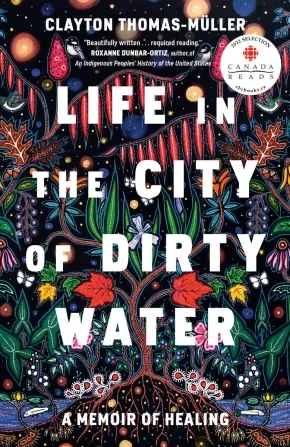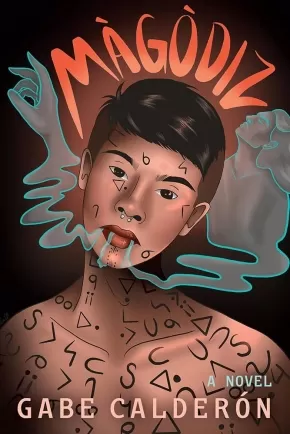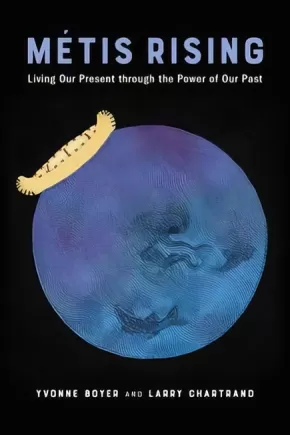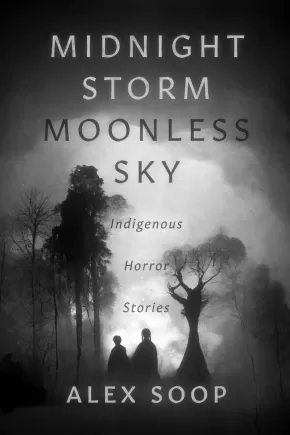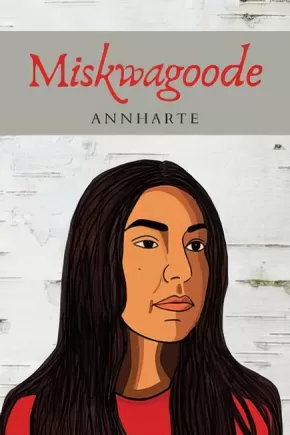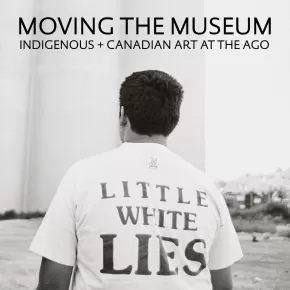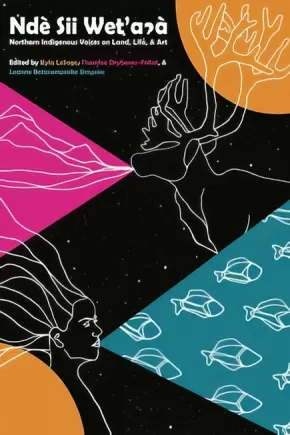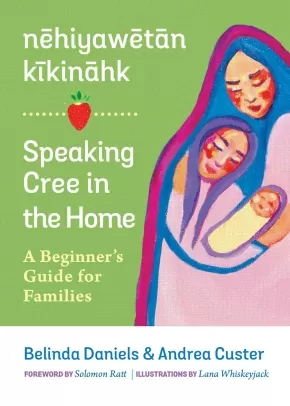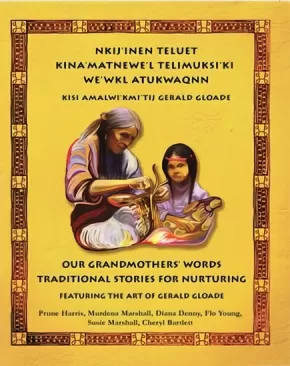
First Nations
286
-
300
of
786 Results;
Sort By
Go To
of 53
Life in the City of Dirty Water: A Memoir of Healing (PB)
$19.95
Format:
Paperback
Text Content Territories:
Indigenous Canadian; First Nations; Cree (Nehiyawak); Swampy Cree ; Mathias Colomb First Nation;
ISBN / Barcode: 9780735240087
Synopsis:
Synopsis:
An electrifying memoir that braids together the urgent issues of Indigenous rights and environmental policy, from a nationally and internationally recognized activist and survivor.
There have been many Clayton Thomas-Mullers: The child who played with toy planes as an escape from domestic and sexual abuse, enduring the intergenerational trauma of Canada's residential school system; the angry youngster who defended himself with fists and sharp wit against racism and violence, at school and on the streets of Winnipeg and small-town British Columbia; the tough teenager who, at 17, managed a drug house run by members of his family, and slipped in and out of juvie, operating in a world of violence and pain.
But behind them all, there was another Clayton: the one who remained immersed in Cree spirituality, and who embraced the rituals and ways of thinking vital to his heritage; the one who reconnected with the land during summer visits to his great-grandparents' trapline in his home territory of Pukatawagan in northern Manitoba.
And it's this version of Clayton that ultimately triumphed, finding healing by directly facing the trauma that he shares with Indigenous peoples around the world. Now a leading organizer and activist on the frontlines of environmental resistance, Clayton brings his warrior spirit to the fight against the ongoing assault on Indigenous peoples' lands by Big Oil.
Tying together personal stories of survival that bring the realities of the First Nations of this land into sharp focus, and lessons learned from a career as a frontline activist committed to addressing environmental injustice at a global scale, Thomas-Muller offers a narrative and vision of healing and responsibility.
Reviews
“Clayton Thomas-Müller—Cree poet and environmental warrior dedicated to decolonization—has crafted an awesome, lyrical memoir that captures the experiences of urban Indigenous youth facing poverty, drugs, alcohol, domestic violence, and juvenile detention. Most, like Clayton, inherited the intergenerational trauma of residential schools. Clayton found a way to escape trauma and poverty in order to fight for his people. This beautifully written book is required reading for everyone who cares about justice for the survivors of genocide who continue to survive in colonized conditions. It offers a path to liberation that may also be the way to saving the earth and humanity itself.” — Roxanne Dunbar-Ortiz, author of An Indigenous Peoples’ History of the United States
“This book is an adventure story in every way. A life of drug dealers and crackhouses and guns; leaving that behind for a remarkable time of spiritual and personal growth; and there’s the ongoing adventure of working desperately to protect the planet and its sacred places. Clayton Thomas-Müller relates these adventures in ways that will help everyone through unfamiliar terrain—he’s a trustworthy guide and an authentic storyteller. In a moment when Indigenous people around the world are coming to the very fore of the most crucial fights, this volume will broaden your understanding in powerful ways. And you won’t forget its scenes any time soon.”—Bill McKibben, co-founder of 350.org and author of Earth and Oil and Honey
Additional Information
240 pages | 5.19" x 7.97" | Paperback
Lunar Tides
$20.00
Format:
Paperback
Text Content Territories:
Indigenous Canadian; First Nations; Mi'kmaq;
Reading Level: N/A
ISBN / Barcode: 9781771667388
Synopsis:
Synopsis:
Expansive and enveloping, Webb-Campbell's collection asks, "Who am I in relation to the moon?" These poems explore the primordial connections between love, grief, and water, structured within the lunar calendar.
The poetics follow rhythms of the body, the tides, the moon, and long, deep familial relationships that are both personal and ancestral. Originating from Webb-Campbell's deep grief of losing her mother, Lunar Tides charts the arc to finding her again in the waves. Written from a mixed Mi'kmaq/settler perspective, this work also explores the legacies of colonialism, kinship and Indigenous resurgence.
Lunar Tides is the ocean floor and a moonlit night: full of possibility and fundamental connections.
Reviews
"Lunar Tides, Shannon Webb-Campbell exposes a heart that's broken but also carried across the gulf between the moon and the sea, a heart that knows how "grief takes up with the body." She shows us that grief is tidal, its ebb and flow pulsing like the moon and dog-earring our memories. This book reminds us that, grieving or not, we "need to be held by something other than a theory." —Douglas Walbourne-Gough, author of Crow Gulch
Additional Information
128 pages | 6.00" x 8.00" | Paperback
Magodiz
$22.95
Format:
Paperback
Text Content Territories:
Indigenous Canadian; First Nations; Anishinaabeg; Algonquin;
Reading Level: N/A
ISBN / Barcode: 9781551528991
Synopsis:
Synopsis:
Magodiz (Anishinabemowin, Algonquin dialect): a person who refuses allegiance to, resists, or rises in arms against the government or ruler of their country.
Everything that was green and good is gone, scorched away by a war that no one living remembers. The small surviving human population scavenges to get by; they cannot read or write and lack the tools or knowledge to rebuild. The only ones with any power are the mindless Enforcers, controlled by the Madjideye, a faceless, formless spiritual entity that has infiltrated the world to subjugate the human population.
A'tugwewinu is the last survivor of the Andwanikadjigan. On the run from the Madjideye with her lover, Bel, a descendant of the Warrior Nation, they seek to share what the world has forgotten: stories. In Pasakamate, both Shkitagen, the firekeeper of his generation, and his life's heart, Nitawesi, whose hands mend bones and cure sickness, attempt to find a home where they can raise children in peace without fear of slavers or rising waters. In Zhong yang, Riordan wheels around just fine, leading xir gang of misfits in hopes of surviving until the next meal. However, Elite Enforcer H-09761 (Yun Seo, who was abducted as a child, then tortured and brainwashed into servitude) is determined to arrest Riordan for theft of resources and will stop at nothing to bring xir to the Madjideye. In a ruined world, six people collide, discovering family and foes, navigating friendship and love, and reclaiming the sacredness of the gifts they carry.
With themes of resistance, of ceremony as the conduit between realms, of transcending gender, Magodiz is a powerful and visionary reclamation that Two-Spirit people always have and always will be vital to the cultural and spiritual legacy of their communities.
Additional Information
304 pages | 6.00" x 9.00" | Paperback
Making a Chaputs: The Teachings and Responsibilities of a Canoe Maker
$24.95
Format:
Paperback
Text Content Territories:
Indigenous Canadian; First Nations; Nuu-chah-nulth (Nootka); Tla-o-qui-aht First Nation;
Reading Level: N/A
ISBN / Barcode: 9780772680273
Synopsis:
Synopsis:
A rich visual testament to the practical and cultural power of the dugout canoe, balanced in its description of meaning and method.
Tla-o-qui-aht master canoe maker Joe Martin, in collaboration with former museum curator Alan Hoover, describes the meaning and method behind one of the most vivid and memorable symbols of the Northwest Coast: the dugout canoe. Both artform and technological marvel, the chaputs carries Indigenous cultural knowledge passed down through generations, not only of the practical forestry and woodworking that shape every canoe, but also of the role and responsibilities of the canoe maker.
The text includes both a step-by-step explanation of the canoe-making process from tree selection onward (carefully described and dynamically illustrated) and the personal histories of a number of Joe's canoes, encompassing their planning, creation, cultural significance and role in the process of reconciliation. The teachings Joe received from his father and the expertise he has gained in a lifetime of canoe-making are recorded here in his own words for generations to come.
Reviews
“In Making a Chaputs, Nuu-chah-nulth canoe artist Joe Martin shows how he carves dugout canoes, explaining how and why he makes two full-size canoes from a single cedar log. It is a clever, amazing tradition rooted in deep respect for the forest and a lifetime of Indigenous knowledge—a highly recommended book!”—Kathryn Bernick, archaeologist and author of numerous books including Waterlogged: Examples and Procedures for Northwest Coast Archaeologists and Basketry and Cordage from Hesquiat Harbour
“When tracing ancient basketry styles in the archaeological waterlogged/wet sites of the Salish Sea for thousands of years, we defined our approach as Generationally-Linked Archaeology. As seen at the Makah Ozette Village archaeological wet site from ca. 1700, preserved chaputs canoe models reflect this West Coast tradition a full 16 generations back. Joe Martin, Tla-o-qui-aht First Nation Elder and master canoe carver, best reflects these generationally linked traditions, constructing over 60 full-size chaputs, passing this paramount art on through Native apprentices and, here, in his own words, with esteemed curator and author Alan Hoover.” —Ed Carriere, Suquamish Elder and Master Basketmaker and Coast Salish Canoe Carver, and Dale R. Croes, Ph.D. Northwest Coast wet site archaeologist, Washington State University, co-authors of Re-Awakening Ancient Salish Sea Basketry
Additional Information
96 pages | 8.97" x 8.97" | Paperback
Métis Rising: Living Our Present Through the Power of Our Past (HC) (1 in Stock)
$89.95
Format:
Hardcover
Text Content Territories:
Indigenous Canadian; Métis;
Grade Levels: University/College;
ISBN / Barcode: 9780774880749
Synopsis:
Synopsis:
Métis Rising draws on a remarkable cross-section of perspectives to tell the histories, stories, and dreams of people from varied backgrounds, demonstrating that there is no single Métis experience – only a common sense of belonging and a commitment to justice.
The contributors to this unique collection, most of whom are Métis themselves, examine often-neglected aspects of Métis existence in Canada. They trace a turbulent course, illustrating how Métis leaders were born out of the need to address abhorrent social and economic disparities following the Métis–Canadian war of 1885. They talk about the long and arduous journey to rebuild the Métis nation from a once marginalized and defeated people; their accounts ranging from personal reflections on identity to tales of advocacy against poverty and poor housing. And they address the indictment of the jurisdictional gap whereby neither federal nor provincial governments would accept governance responsibility towards Métis people.
Métis Rising is an extraordinary work that exemplifies how contemporary Métis identity has been forged by social, economic, and political concerns into a force to be reckoned with.
A must-read not only for scholars and students of Métis and Indigenous studies but for lawyers, policymakers, and all Canadians who wish a broader understanding of this country’s colonial past.
Additional Information
280 pages | 6.00" x 9.00" | 3 b&w illus., 2 maps, 8 charts, 3 tables | Hardcover
Midnight Storm Moonless Sky: Indigenous Horror Stories
$25.95
Format:
Paperback
Text Content Territories:
Indigenous Canadian;
Reading Level: n/a
ISBN / Barcode: 9781990735127
Synopsis:
Synopsis:
Blackfoot storyteller Alexander Soop plunges us into a shocking well of imagination in his debut collection of short stories, Midnight Storm Moonless Sky. From hauntings on the Highway of Tears to fearful gatherings of ghosts and the sorrows of racism, Soop combines the social anxieties of Indigenous life with spellbinding flights and frights of speculative fiction. Through these enthralling stories of reality mixed with terror, readers get a wicked glimpse into the genre of Indigenous Horror – a combination of First Nations legends, dark fantasy, apocalyptic and paranormal enchantment, and monstrous secrets. In addition to his hungering to scare the wits out of readers, Alexander Soop also examines the overlooked matters affecting First Nations across the diverse world of Turtle Island. Midnight Storm Moonless Sky is Volume One in the Indigenous Horror series, a spinoff of the UpRoute Indigenous Spirit of Nature imprint.
Educator & Series Information
Alex Soop meticulously voices each and every one of the stories in Midnight Storm Moonless Sky from the First Nations Peoples’ perspective. While striving to entertain readers with his bloodcurdling tales, Alexander imaginatively implements the numerous issues that plague the First Nations people of North America, by way of subliminal and head-on messages. These specific matters include alcohol and drug abuse; systemic racism; missing and murdered Indigenous women and girls; foster care; Residential School aftereffects; and over-incarceration. He also deals with legends of Indigenous folklore, such as Wendigo, ghosts, and the afterlife.
Midnight Storm Moonless Sky is Volume One in the Indigenous Horror series, a spinoff of the UpRoute Indigenous Spirit of Nature imprint.
Additional Information
288 pages | 6.00" x 9.00"| Paperback
Miskwagoode
$16.00
Format:
Paperback
Text Content Territories:
Indigenous Canadian; First Nations; Anishinaabeg;
Reading Level: N/A
ISBN / Barcode: 9781554201846
Synopsis:
Synopsis:
Taken from the Anishinaabe word for "woman," Miskwagoode is a lyrical portrayal of unreconciled Indigenous experience under colonialism, past and present.
Annharte is Miskwa, and so is Annharte's mother, who disappeared when the author was a girl. Miskwagoode is Annharte's book about her mother loss, her “mothermiss,” about all the women “buried in common enough/ cross-generational graves.”
Laced with humour and resilience but also hard-earned wisdom (“ominous progress ahead”), Annharte's fifth collection encompasses the poet's experiences as an Anishinaabe Elder, now experiencing the still-endemic inequalities of persisting colonialism, “witness not survivor.”
In her sly, cheeky riffs on life behind the “buckskin curtain” at the margins of settler society, Annharte talks about granny circles, horny old guys, and getting your hair done — the belonging her community offers. But she sets these poems about rez life against the background radiation: the poverty and the sickness, despair, violence, sexism, and sexual abuse that flow from unequal relationships.
Miskwagoode concludes with “Wabang,” a suite of short poems comprising Annharte's own thumbnail transcontinental Indigenous mythology.
Additional Information
80 pages | 6.00" x 9.00" | Paperback
Moving the Museum: Indigenous + Canadian Art at the AGO
$45.00
Artists:
Editors:
Format:
Hardcover
Text Content Territories:
Indigenous Canadian;
Grade Levels: 12; University/College;
ISBN / Barcode: 9781773102023
Synopsis:
Synopsis:
Moving the Museum documents the reopening of the J.S. McLean Centre for Indigenous & Canadian Art with a renewed focus on the AGO’s Indigenous art collection. The volume reflects the nation-to-nation treaty relationship that is the foundation of Canada, asking questions, discovering truths, and leading conversations that address the weight of history and colonialism.
Lavishly illustrated with more than 100 reproductions, Moving the Museum: Indigenous + Canadian Art at the AGO features the work of First Nations artists — including Carl Beam, Rebecca Belmore, and Kent Monkman — along with work by Inuit artists like Shuvinai Ashoona and Annie Pootoogook. Canadian artists include Lawren Harris, Kazuo Nakamura, Joyce Wieland, and many others. Drawing from stories about our origins and identities, the featured artists and essayists invite readers to engage with issues of land, water, transformation, and sovereignty and to contemplate the historic and future representation of Indigenous and Canadian art in museums.
Educator Information
Celebrates the renewed focus on Indigenous art at the J.S. McLean Centre for Indigenous & Canadian Art.
Features essays on the curatorial decisions made in redesigning the gallery, as well as pieces on individual artis and the history of Canadian, Indigenous, and Black art at the AGO.
Over 100 images, including art by Karoo Ashevak, June Clark, and Rebecca Belmore.
Additional Information
270 pages | 10.25" x 10.25" | Hardcover
My Indian Summer
$22.95
Format:
Paperback
Text Content Territories:
Indigenous Canadian; First Nations; Cree (Nehiyawak);
Reading Level: N/A
ISBN / Barcode: 9781990160127
Synopsis:
Synopsis:
Three kookums, a man named Crow, two best friends, and a drug dealer . . . twelve-year-old Hunter may be getting out of Red Rock sooner than he hoped.
For Hunter Frank, the summer of ’79 begins with his mother returning home only to collect the last two months’ welfare cheques, leaving her three “fucking half-breeds” to fend for themselves. When his older sister escapes their northern BC town and his brother goes to fight forest fires, Hunter is on his own, with occasional care coming from a trio of elders—his kookums—and companionship from his two best friends.
It’s been a good summer for the young entrepreneur, but the cash in the purple Crown Royal bag hidden in his mattress still isn’t enough to fund his escape from his monstrous mother and the town of Red Rock. As the Labour Day weekend arrives, so does a new friend with old wisdom and a business opportunity that might be just a boy at the crossroads needs. My Indian Summer is the story of a journey to understanding that some villains are also victims, and that while reconciliation may not be possible, survival is.
Reviews
"He breathes life into his characters at their first mention and draws you into the gossamer web of his vibrant storytelling, from which there is no escape other than to read a story through to its end." -Darrel J. McLeod
Additional Information
240 pages | 5.50" x 8.50" | Paperback
My Privilege, My Responsibility: A Memoir
$24.95
Format:
Paperback
Text Content Territories:
Indigenous Canadian; First Nations; Cree (Nehiyawak); Woodland Cree; Rocky Cree; Bunibonibee Cree Nation ;
Reading Level: N/A
ISBN / Barcode: 9781773370668
Synopsis:
Synopsis:
In September 2015, Sheila North was declared the Grand Chief of Manitoba Keewatinowi Okimakanak (MKO), the first woman elected to the position. Known as a “bridge builder”, North is a member of Bunibonibee Cree Nation. North’s work in advocacy journalism, communications, and economic development harnessed her passion for drawing focus to systemic racism faced by Indigenous women and girls. She is the creator of the widely used hashtag #MMIW. In her memoir, Sheila North shares the stories of the events that shaped her, and the violence that nearly stood in the way of her achieving her dreams. Through perseverance and resilience, she not only survived, she flourished.
Additional Information
232 pages | 6.00" x 9.00" | Paperback
Nahganne: Tales of the Northern Sasquatch (3 in Stock)
$35.00
Format:
Paperback
Text Content Territories:
Indigenous Canadian;
Reading Level: N/A
ISBN / Barcode: 9781988824598
Synopsis:
Synopsis:
Nahganne: Tales of the Northern Sasquatch is about giant bipedal, forest dwelling, hirsute hominoid entities. For as long as humans have been around the North, the activities of these giants have been observed in many places, but only a few people have taken the time to share their stories of coming in contact with these forest giants. In the North they have been given many regional names; although they are commonly known as Nahganne or Sasquatch. The book presents activities occurring in the North such as sightings, strange vocals, discovery of large human-liked footprints, strange animal reaction, and weird tree events. It also contains bits of history about northern North America plus details about the First Nation Peoples and their history. In the book, Red Grossinger investigates and analyses the many reports that he has received with details about the encounters and occurrences.
Reviews
"A tale as old as the North. We’ve heard of Nahganne for many generations. The North is under-explored and we don’t know what’s out there. " —Lawrence Nayally, CBC North
"As an academic I appreciated the scientific analyses of the various Sasquatch sightings and the attention paid to details. As a First Nations person I enjoyed the storytelling qualities and humanistic approach of the book. Even though I have delved into the topic at various times myself, I have been surprised by how many sighting there have been! I have friends and family that have seen the Sasquatch, and this book assures that many of the stories won’t be lost through time. I applaud Mr. Grossinger for adding an important aspect of Yukon people’s experiences to local history." — Ukjese van Kampen PhD
"Red Grossinger has put together an enthusiastic and insightful inspection of Nahganne or the Northern Sasquatch using intriguing real-life examples, many of which he investigated himself. He believes Nahganne is scientifically “obvious” and details a history of research and encounters that date back more than a century. His only request of readers is to keep an open mind. When you finish this book, perhaps you too will believe." — John Firth, author of The Caribou Hotel: Hauntings, hospitality, a hunter and the parrot and One Mush: Jamaica's Dogsled Team
Additional Information
288 pages | 6.00" x 9.00" | 15 b&w illustrations | Paperback
288 pages | 6.00" x 9.00" | 15 b&w illustrations | Paperback
Namwayut - We Are All One: A Pathway to Reconciliation
$29.95
Format:
Hardcover
ISBN / Barcode: 9781774580059
Synopsis:
Synopsis:
We all share a common humanity. No matter how long or difficult the path ahead, we are all one.
Reconciliation belongs to everyone. In this profound book, Chief Robert Joseph, globally recognized peacebuilder and Hereditary Chief of the Gwawaenuk People, traces his journey from his childhood surviving residential school to his present-day role as a leader who inspires individual hope, collective change, and global transformation.
Before we get to know where we are going, we need to know where we came from. Reconciliation represents a long way forward, but it is a pathway toward our higher humanity, our highest selves, and an understanding that everybody matters. In Namwayut, Chief Joseph teaches us to transform our relationships with ourselves and each other. As we learn about, honour, and respect the truth of the stories we tell, we can also discover how to dismantle the walls of discrimination, hatred, and racism in our society.
Chief Joseph is known as one of the leading voices on peacebuilding in our time, and his dedication to reconciliation has been recognized with multiple honorary degrees and awards. As one of the remaining first-language speakers of Kwak'wala, his wisdom is grounded in Indigenous ways of knowing while making space for something bigger and better for all of us.
Additional Information
200 pages | 5.25" x 8.00" | Hardcover
Ndè Sii Wet'aà: Northern Indigenous Voices on Land, Life, & Art
$24.00
Format:
Paperback
Text Content Territories:
Indigenous Canadian; Inuit; Inuvialuit (Mackenzie Inuit); First Nations; Tutchone; Northern Tutchone; Dene; Tlicho (Dogrib); South Slavey (Deh Cho); North Slavey (Sahtu); Kaska Dena (Denek’eh); Denesuline (Chipewyan); Sayisi Dene; Cree (Nehiyawak); Métis; Indigenous American; Alaska Native; Dena?ina (Tanaina); Alutiiq (Sugpiaq);
Grade Levels: 12; University/College;
ISBN / Barcode: 9781927886625
Synopsis:
Synopsis:
Ndè Sii Wet'aà: Northern Indigenous Voices on Land, Life, & Art is a collection of essays, interviews, short stories and poetry written by emerging and established northern Indigenous writers and artists. Centred on land, cultural practice and northern life, this ground-breaking collection shares wealth of Dene (Gwichʼin, Sahtú, Dehcho, Tłı̨chǫ, Saysi, Kaska, Dënesuiné, W?ìl?ìdeh ) Inuit, Alutiiq, Inuvialuit, Métis, Nêhiyawak (Cree), Northern Tutchone, and Tanana Athabascan creative brilliance. Ndè Sii Wet'aà holds up the voices of women and Two Spirit and Queer writers to create a chorus of voices reflecting a deep love of Indigenous cultures, languages, homelands and the north. The book includes a series of pieces and interviews from established northern artists and musicians including Leela Gilday, Randy Baillargeon (lead singer for the W?ìl?ìdeh Drummers), Inuit sisters, song-writers and throat singers Tiffany Ayalik and Inuksuk Mackay of Piqsiq, Two Spirit Vuntut Gwitchin visual artist Jeneen Frei Njootli, Nunavik singer-songwriters Elisapie and Beatrice Deere and visual artist Camille Georgeson-Usher. Ndè Sii Wet'aà also includes writing from well-known northern writers Siku Allooloo, T'áncháy Redvers (Fireweed), Antione Mountain (From Bear Rock Mountain), Glen Coulthard (Red Skin, White Masks), Catherine Lafferty (Northern Wildflower, Land-Water-Sky) and Lianne Marie Leda Charlie, in amongst the best emerging writers in the north.
Additional Information
264 pages | 6.00" x 9.00" | Paperback
nēhiyawētān kīkināhk / Speaking Cree in the Home
$19.95
Artists:
Format:
Paperback
Text Content Territories:
Indigenous Canadian; First Nations; Cree (Nehiyawak);
Reading Level: N/A
ISBN / Barcode: 9780889779006
Synopsis:
Synopsis:
A hands-on guide for parents and caregivers to develop best practices in revitalizing and teaching Cree to young children.
In nēhiyawētān kīkināhk / Speaking Cree in the Home, Belinda Daniels and Andrea Custer provide an introductory text to help families immerse themselves, their children, and their homes in nēhiyawēwin—the Cree language.
Despite the colonial attacks on Cree culture, language, and peoples, Custer and Daniels remind readers that the traditional ways of knowing and transferring knowledge to younger generations have not been lost and can be revived in the home, around the table, every day.
nēhiyawētān kīkināhk / Speaking Cree in the Home is an approachable, hands-on manual that helps to re-forge connections between identity, language, family, and community—by centering Indigenous knowledge and providing Cree learners and speakers with a practical guide to begin their own journey of reclaiming and revitalizing Cree in the home.
Readers are guided through methods for language learning, the basics of reading Cree and Standard Roman Orthography, pronunciation of vowels, engaging language-learning games, and examples of high-frequency words and phrases that can easily be incorporated into daily routines and taught to children young and old.
Reviews
“This is a welcome book for all who are interested in learning the Cree language, either for themselves alone or for themselves and their families. The book offers good guidance on the best practices in language learning based on the authors’ personal experiences in their respective language journeys.” —Solomon Ratt, author of mâci-nêhiyawêwin / Beginning Cree
“A major contribution, this book will be a useful resource in Cree classes, at both high school and university levels. But it is also useful for home use, as it describes the practical application of speaking Cree in the home and provides in an easy-to-read format and details a hands-on approach too.” —Dorothy Thunder (Plains Cree, Little Pine First Nation), Faculty of Native Studies, University of Alberta
“The activity-based learning lessons that are presented here should serve as a model not only for teaching the language in a family setting, but in any other formal and informal settings, because they cover all aspects of teaching and learning; the content, variety of methods, appropriate timing and setting. . . . The pioneering in Cree language acquisition and revival has begun and hopefully this book reaches all interested individuals.” —Ken Paupanekis, author of Pocket Cree: A Phrasebook for Nearly All Occasions
Additional Information
122 pages | 4.72" x 7.27" | Paperback
Nkij'inen Teluet / Our Grandmothers' Words : Traditional Stories For Nurturing
$14.95
Format:
Paperback
Text Content Territories:
Indigenous Canadian; First Nations; Mi'kmaq;
ISBN / Barcode: 9781774710869
Synopsis:
Synopsis:
Through traditional stories, Grandmothers' understandings guide and nurture parents and children as they grow together.
Sali'j is a Mi'kmaw woman. She is strong, she is happy. Happy to be part of a loving family, happy to be Mi'kmaq. She begins to notice changes to her body, subtle at first, then more noticeable. She realizes that she is pregnant. She and her husband rejoice to think of welcoming a child into their lives. She goes to her Mother, to her Grandmother, to her Godmother. She tells them she is pregnant. They hug her in joy.
They gather their knowledge and their wisdom from teachings passed down from woman to woman, over the generations; they share this knowledge, little by little, story by story. This is the Mi'kmaw way.
Educator Information
Dual-language: English and Mi'kmaq.
This book is created by Prune Harris from the words and wisdom of four Grandmothers from the Mi’kmaw Nation of Eskasoni. They are Diana Denny, Murdena Marshall, Susie Marshall and Veronica (Flo) Young.
Additional Information
64 pages | Paperback
Sort By
Go To
of 53

